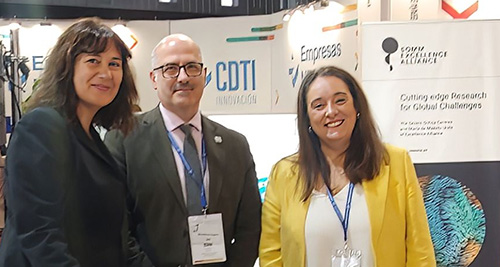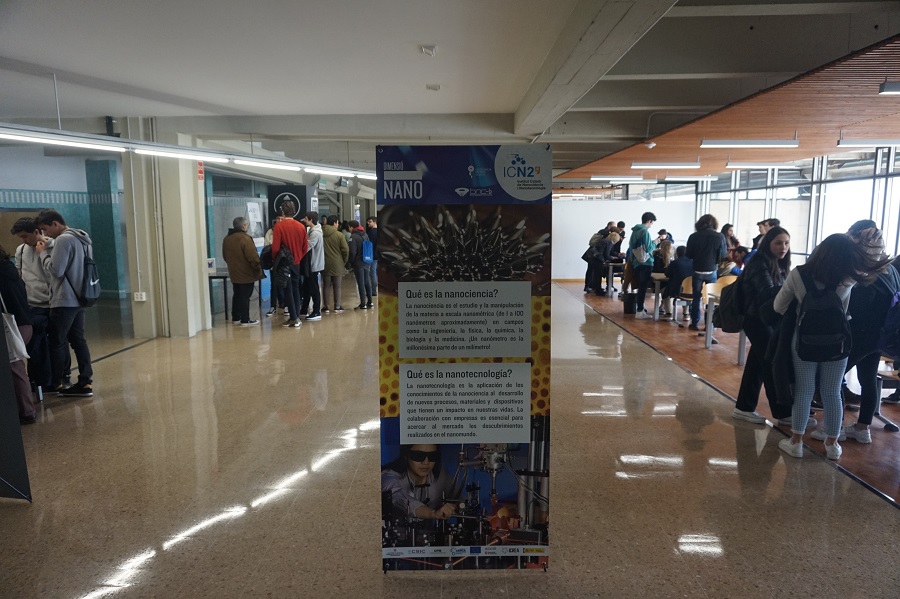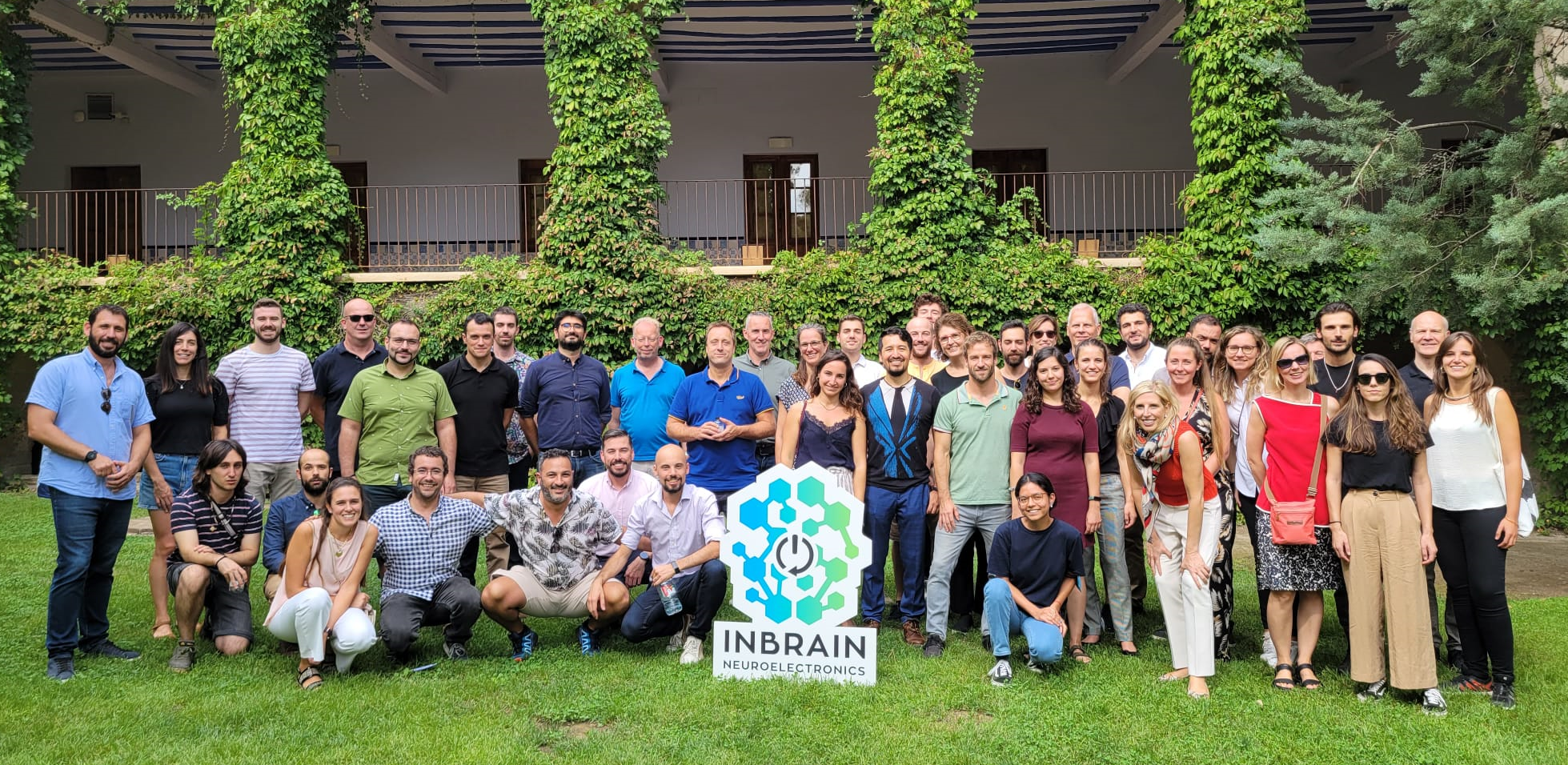-- Wednesday, 22 February 2023
AGAUR FI prioritised applicants for early-career research staff Joan Oró contracts in 2023
The document announces the prioritised applicants.


-- Wednesday, 22 February 2023
The document announces the prioritised applicants.

-- Tuesday, 21 February 2023
ICN2 was present at Transfiere Málaga, a forum that connects the international R&D+I ecosystem. Claudia Nieva, Business Developer at ICN2's Business and Innovation team, presented innovative technologies from the ICN2 Groups and spin-off companies that are gaining recognition. These companies include Cooling Photonics, FutureChromes, and GraphenicaLab.

-- Tuesday, 21 February 2023
Last Saturday, Head of the ICN2 Marketing and Communication Department, Àlex Argemí, engaged participants with a series of nanoscale challenges and experiments that sparked a lively debate around the ethical implications of nanotechnology. The next session will be led by Professor Javier Rodríguez-Viejo, UAB Professor and Senior Group Leader of the ICN2 Thermal Properties of Nanoscale Materials Group, on the topic of electromagnetism.

-- Tuesday, 21 February 2023
European research centres and companies leading the development of supercomputing hardware and simulation software re-join forces in the third phase of the MaX European Centre of Excellence, funded by the European Union (grant agreement no. 101093374) and supported by the Euro HPC Joint Undertaking (EuroHPC JU) and its member states. The MaX (“MAterials design at the eXascale”) Centre will continue to drive the evolution of materials science simulation software towards a new era of extremely increased computation power. This will open new opportunities for designing and testing materials for applications in crucial fields, such as clean energy, new IT technologies, and manufacturing as a whole.

-- Monday, 20 February 2023
INBRAIN Neuroelectronics has won the Empresa + Innovadora prize from EL PERIÓDICO for its development of graphene-based chips implantable in the brain. The material, which is 200 times stronger than aluminum, flexible, and biocompatible, allows for less invasive and more effective brain implants for the treatment of neurological diseases such as Parkinson's, epilepsy, depression, and Alzheimer's. The first human clinical trial using the technology is set to begin later this year, marking the first time a graphene-based interface has been implanted in a person for high-precision tumour intervention.
